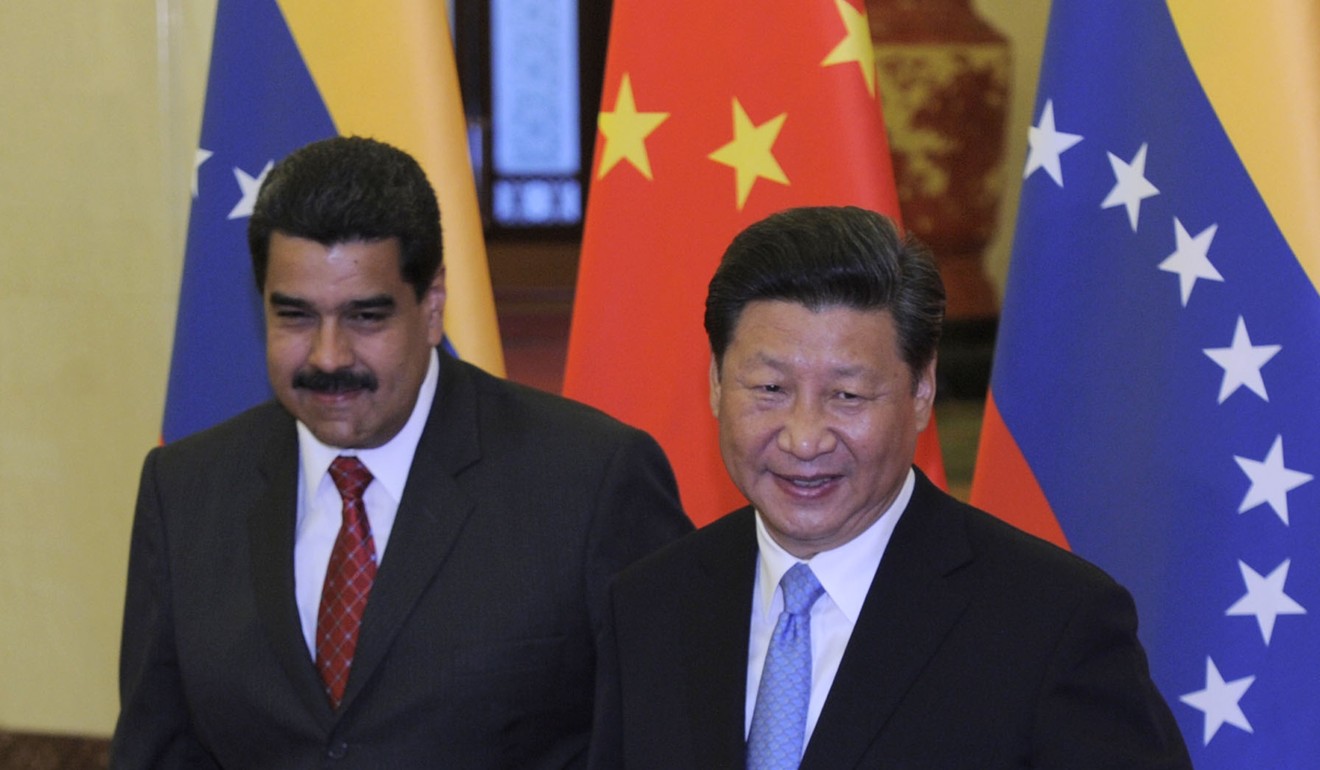
China could play big role in Venezuela’s ‘reconstruction’, IADB representative says
- Ricardo Hausmann, designated by opposition leader Juan Guaido, was refused a visa by Beijing, leading the lender to cancel a meeting in Chengdu
- He calls for China to establish communication with Guaido, saying there are ‘enormous opportunities’

The representative chosen by Venezuelan opposition leader Juan Guaido at the Inter-American Development Bank has suggested China could take a big role in the country’s “reconstruction”, even after Beijing denied him a visa – leading the IADB to scrap a meeting in a Chinese city this week.
Ricardo Hausmann, a Harvard professor, was designated as the IADB representative by Venezuelan opposition leader Juan Guaido and endorsed by the Washington-headquartered lender less than two weeks ago.
He confirmed that the IADB had decided to call off its general assembly – which was due to be held from Thursday to Sunday in Chengdu, Sichuan province – after his visa application was rejected.
But he called for China to establish communication with Guaido, who has declared himself interim leader, saying it could have opportunities in post-Nicolas Maduro Venezuela, which would be in Beijing’s interest because oil production would increase.
“There are enormous opportunities if we keep our eye on the future, not the past. For example, China needs to assure its energy supplies and Venezuela has very large oil reserves, probably the largest in the world,” Hausmann said.
“But Venezuelan oil production today is less than half of what it was when Maduro took power in 2013, and less than a third of what it was when [Hugo] Chavez took power in 1999. This is not in China’s interest.
“After [the Maduro government] leaves, Venezuela is a country that needs to be reconstructed. China can have a very large role to play in that process.”
He also said that all IADB member countries except for Belize, Bolivia and Nicaragua had voted to move the annual meeting elsewhere.
The IADB – the biggest lender to Latin America – has not given a reason for calling off the annual conference in Chengdu, which was chosen as host to mark the 10th anniversary of China joining the organisation.
“China decided not to authorise my participation by denying me the visa. This was in clear violation of IADB rules: the host country cannot decide who gets to go to the IADB meeting. It is as if the US would decide who gets to go to the UN General Assembly,” Hausmann said.
“China attempted to abuse its role as host country to determine who was supposed to attend. The membership responded forcefully – only three small countries out of 48 sided with China.”
China’s foreign ministry has said the cancellation was not Beijing’s responsibility.

Nicaragua has diplomatic ties with Taiwan instead of Beijing, but like Bolivia, it has backed Maduro as president, along with China, Russia, Cuba, Belarus, Iran, Syria, Turkey and the United Nations. Belize has been silent on the Venezuela divide so far.
Guaido has the backing of more than 60 countries including most Latin American nations and Western powers including the United States, Britain, Germany, France, Spain, Australia and Canada.
Analysts have said China would not recognise Guaido as interim president because it went against its policy of not intervening in the domestic politics of other countries. In late February, China joined Russia in vetoing a US-drafted UN Security Council resolution calling for a new presidential election in Venezuela.
Hausmann said Guaido was still trying to establish communications with Beijing and he hoped discussions could start as soon as possible.
“I … hope that China heeds our call and stand ready to engage in discussions with China, as we are doing already with the countries that have recognised the Guaido government,” he said.
“The sooner we can engage China, the better for both of our countries; but cognisant of the desperate needs of the Venezuelan people, we will continue to move forward with all willing partners. We hope that China can be one them.”
Hausmann, who was the IADB’s chief economist and director of its research department from 1994 to 2000, also blamed Maduro for an aborted China project to upgrade the largest hydroelectric power plant in Venezuela – which has been hit by massive blackouts – back in 2010.
He said he planned to make better use of the financing vehicle by joining the IADB for development projects like this.
“The Maduro regime has allowed the relationship [between the IADB and Venezuela] to die – the last project was approved in 2010, almost a decade ago,” Hausmann said.
“It was supposed to modernise six turbines of the Guri hydroelectric dam, a project that was awarded to Dongfang Electric Machinery, a Chinese company.
“It was supposed to have added 795 megawatts of power to the country by 2016. But the Maduro regime never did its part, the project was not executed and the IADB ended up cancelling the loan in 2018,” he said. “Now the country suffers from a catastrophic electricity crisis which has caused one of the largest blackouts in world history. In this disaster, an important Chinese company was another victim.”
He added that given the IADB’s move, China should also consider the support Guaido has received from other countries.
“But the cancellation does highlight that the issue of Venezuela is no longer one that can be dealt with bilaterally,” Hausmann said. “The overwhelming majority of the countries in the region and beyond understand that Maduro has caused the biggest economic catastrophe the world has ever seen outside war or state collapse.”
However, he said relations between China and the IADB would not suffer “fatal” damage.
“The cancellation of the Chengdu meeting will not structurally damage this relationship, which is based on strong economic complementarities, but an opportunity was lost to showcase and strengthen this relationship,” he said. “It was a missed opportunity, though not fatal to a relationship that should continue to grow and prosper.”